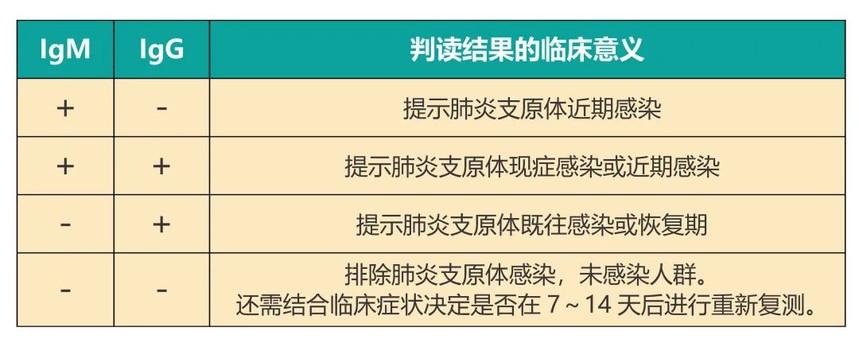|
Exclusive: Zhongjian Antai MP-Igm /IgG antibody detection new product launched时间:2021-07-14 New Arrival MP IgM/IgG antibody Combined detection National instrument registration: 20213400467 One card double item! Easy and fast! Full sample type! What is MP? Mycoplasma pneumoniae (MP) is a common pathogen of acute respiratory tract infection. It is a microorganism between bacteria and virus, which can easily cause trachea, bronchitis, laryngitis and pneumonia. The population is generally susceptible to mycoplasma pneumoniae, which can easily lead to a cluster of epidemics. No vaccine can be prevented at present. The high incidence season of MP infection is generally in autumn and winter, but it can also cause morbidity in summer. After 2~3 weeks' incubation period, MP infection will lead to clinical manifestations, and about 1/3 cases will also be asymptomatic. MP is mainly transmitted by droplets and is a common and susceptible pathogen of pneumonia in children, accounting for about 20% of the incidence of pneumonia in children.
What are the clinical manifestations of MP? After MP infection, the onset of the disease is slow, with early symptoms such as sore throat, headache, fever, fatigue, muscle pain, loss of appetite, nausea, vomiting and so on. Although the symptoms of patients with mycoplasma pneumonia are severe, there are generally no obvious abnormal signs in chest physical examination.
Mild nasal congestion, runny nose, moderate congestion of pharynx. The eardrum is often congested, and about 15% have tympanitis. Cervical lymph nodes may become swollen. A small amount of pleural effusion occurs in about 10%~15% of cases.
In addition to respiratory manifestations, mycoplasma pneumonia may be associated with multi-system and multi-organ damage. Skin damage can be manifested as macular papule, erythema nodosum, herpes simplex and so on. Vomiting, diarrhea, and liver damage are seen in the gastrointestinal system. Hemolytic anemia is more common. Central nervous system damage can be seen in multiple radiculopathy, meningoencephalitis and cerebellar injury. Cardiovascular system pathological changes occasionally myocarditis and pericarditis. How to diagnose MP accurately? The clinical manifestations and chest X-ray examination of mycoplasma pneumonia are not characteristic, and the diagnosis cannot be made only by the clinical manifestations and chest X-ray examination. At present, serological detection is the main diagnostic method for MP in China. The specific indicators commonly used in serological detection are IgM and IgG antibodies. IgM antibodies generally appear within 1 week after infection and peak 3-4 weeks later, lasting 1-3 months or even longer, which can be used as diagnostic indicators of early infection. The emergence of IgG antibody was late, and its concentration peaked at the 5th week after infection, which generally indicated the presence of previous infection. Single detection was of little clinical significance, but it could be used for evaluation and epidemiological investigation of MP previous infection. A single mp-igm positive test is valuable for the diagnosis of recent MP infection in patients, but the detection of IgG antibodies is more meaningful in individuals with defective production of specific IgM. People and infants with recurrent MP infection or immune deficiency may produce no or only low levels of IgM antibodies, resulting in false negative. Detection of MP-igg antibody suggested that there had been MP infection. MP infection can be confirmed when the color of serum MP-igg antibody in acute phase and convalescent phase is significantly enhanced. In conclusion, MP IgM and IgG antibodies should be detected simultaneously in order to improve the accuracy of diagnosis of MYCOplasma pneumoniae and avoid missing detection caused by repeated MP infection or immune deficiency in people and infants who do not produce IgM antibodies.
The MP-igm /IgG antibody test kit developed by AITai can distinguish the detection results of MYCOplasma pneumoniae IgM and IgG antibodies by adding samples at one time. Combined with clinical and other laboratory indicators, the MP-igm /IgG antibody test kit can be used to assist the diagnosis of present and past infection of mycoplasma pneumoniae. checked operation
Results Interpretation and clinical significance
Evaluation of test results requires comprehensive consideration of the clinical course of disease, basic condition, age and other factors of patients, such as: people with low immune function and defects, infants with low antibody production ability, may not produce or produce low titer antibodies. IgG antibody will continue to be positive in partially cured patients, and confirmation of re-infection during this period should be confirmed by antibody titer or RNA test of MP. Medicine suggested For MYCOplasma pneumoniae infection, macrolides antibiotics recommended by domestic and foreign guidelines should be selected and standardized treatment should be carried out.
|












